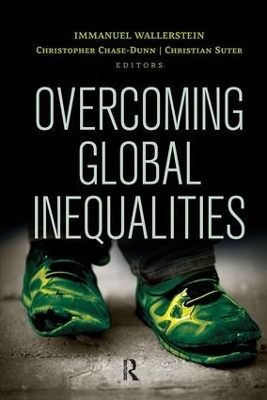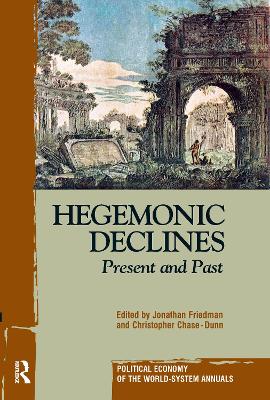Political Economy of the World-System Annuals
2 total works
Overcoming Global Inequalities
by Immanuel Wallerstein, Christopher Chase-Dunn, and Christian Suter
Published 30 November 2014
This book examines the changing nature of global inequalities and efforts that are being made to move toward a more egalitarian world society. The contributors are world historical sociologists and geographers who place the contemporary issues of unequal power, wealth and income in a global historical perspective. The geographers examine the roles of geopolitics and patterns of warfare in the historical development of the modern world-system, and the sociologists examine endeavours to improve the situations of poor peoples and nations and to engage the challenges of sustainability that are linked with global inequalities. Overcoming Global Inequalities contains cutting-edge research from engaged social scientists intended to help humanity deal with the challenges of global inequality in the 21st century.
Although the United States is currently the world's only military and economic superpower, the nation's superpower status may not last. The possible futures of the global system and the role of U.S. power are illuminated by careful study of the past. This book addresses the problems of conceptualizing and assessing hegemonic rise and decline in comparative and historical perspective. Several chapters are devoted to the study of hegemony in premodern world-systems. And several chapters scrutinize the contemporary position and trajectory of the United States in the larger world-system in comparison with the rise and decline of earlier great powers, such as the Dutch and British empires. Contributors: Kasja Ekholm, Johnny Persson, Norihisa Yamashita, Giovanni Arrighi, Beverly Silver, Karen Barkey, Jonathan Friedman, Christopher Chase-Dunn, Rebecca Giem, Andrew Jorgenson, John Rogers, Shoon Lio, Thomas Reifer, Peter Taylor, Albert Bergesen, Omar Lizardo, Thomas D. Hall.

